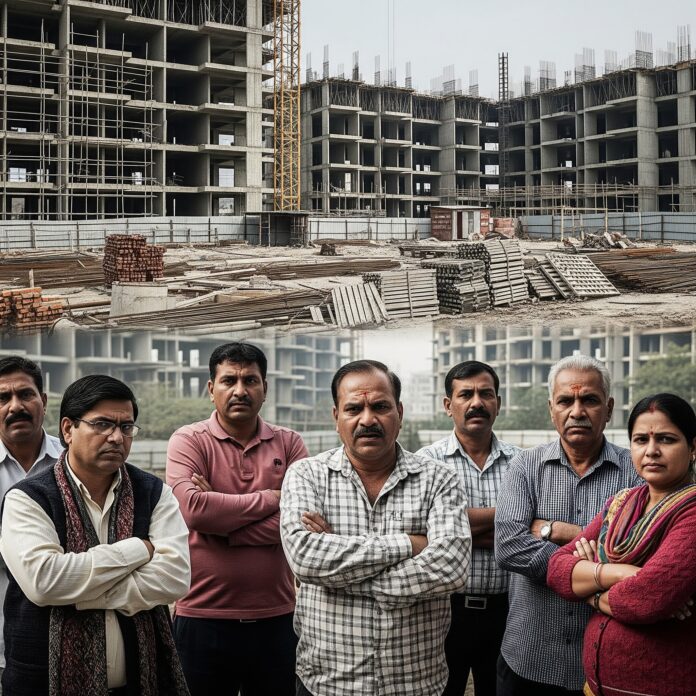CHANDIGARH – A long-awaited residential project by the Chandigarh Housing Board (CHB) in Sector 53, a self-financing housing scheme, has again faltered, pushing its launch further into uncertainty. Despite a recent demand survey in February-March that attracted nearly 7,500 expressions of interest for just 372 flats, the CHB is now compelled to refund the deposited money to these applicants, effectively putting the scheme back to square one. This marks nearly a decade since the city has witnessed a new residential project from the board.
The Sector 53 scheme’s troubled history includes multiple postponements. It was initially slated for launch in 2018 but was dropped due to a poor demand survey. A revival attempt in 2023 was also scuttled by the administration, and despite a renewed decision to launch in 2024, persistent “market and policy constraints” have continued to delay its progress. These recurring delays in urban housing projects are a pervasive challenge across India, often compounded by factors such as complex land acquisition processes, environmental clearances, and funding bottlenecks.
A significant contributor to the current setback is the substantial increase in project costs. An official from CHB highlighted that “due to inflationary issues over the last seven years, the effective cost of the project has increased manifold”. This surge, driven by rising material costs for construction materials like cement and steel, coupled with increasing labor wages over an extended period, directly impacts project viability. The CHB had already increased the prices of the flats by 30-40% following a major hike in collector rates. This means a 3-BHK flat, initially priced at Rs 1.65 crore, is now projected to cost Rs 2.29 crore, while 2-BHK units could rise from Rs 1.40 crore to Rs 1.97 crore. Even EWS (Economically Weaker Section) flats are expected to jump from Rs 55 lakh to Rs 73 lakh, directly impacting “economically weaker sections and middle-class buyers”.
The CHB, a dominant entity in Chandigarh’s housing development, has historically struggled to provide genuinely affordable housing for the general public. While it built a substantial 67,565 houses by March 2019, over half were allocated under slum rehabilitation schemes for the EWS category and not open to the public. Most of its housing for other income groups predates 2000. Its last public scheme in 2016 for 200 flats garnered a poor response, largely attributed to affordability concerns. This mirrors a broader challenge faced by many housing boards in India, which, despite their mandate to provide affordable housing, often contend with bureaucratic inefficiencies, funding limitations, and the escalating costs of urban development that make genuine affordability elusive.
A CHB official, speaking anonymously, sharply criticized the board’s “poor and dilatory decision-making process,” which, despite a monopoly in city housing, failed to launch the project before the rate hike, “creating unnecessary delay, which will now jeopardise the very future of the scheme”. The official suggested that a decision should have been made within a month of the successful demand survey, instead of the two and a half months that elapsed. Consequently, all deposited money by applicants will now be returned.
This recurring pattern of delays, coupled with significant cost escalations, casts a shadow over the CHB’s ability to effectively meet Chandigarh’s burgeoning demand for affordable and middle-income housing, leaving thousands of aspiring homeowners in a state of uncertainty.

